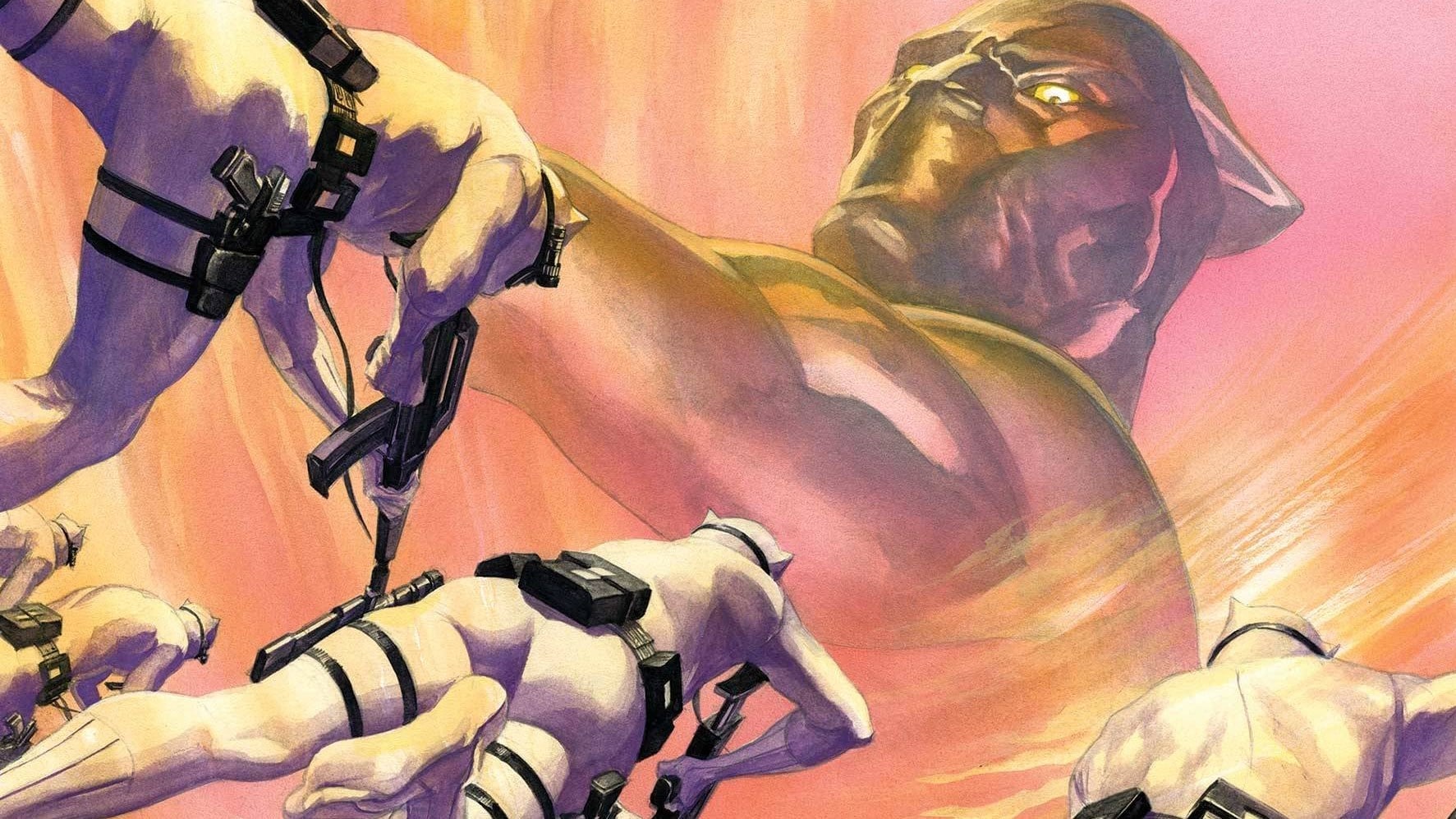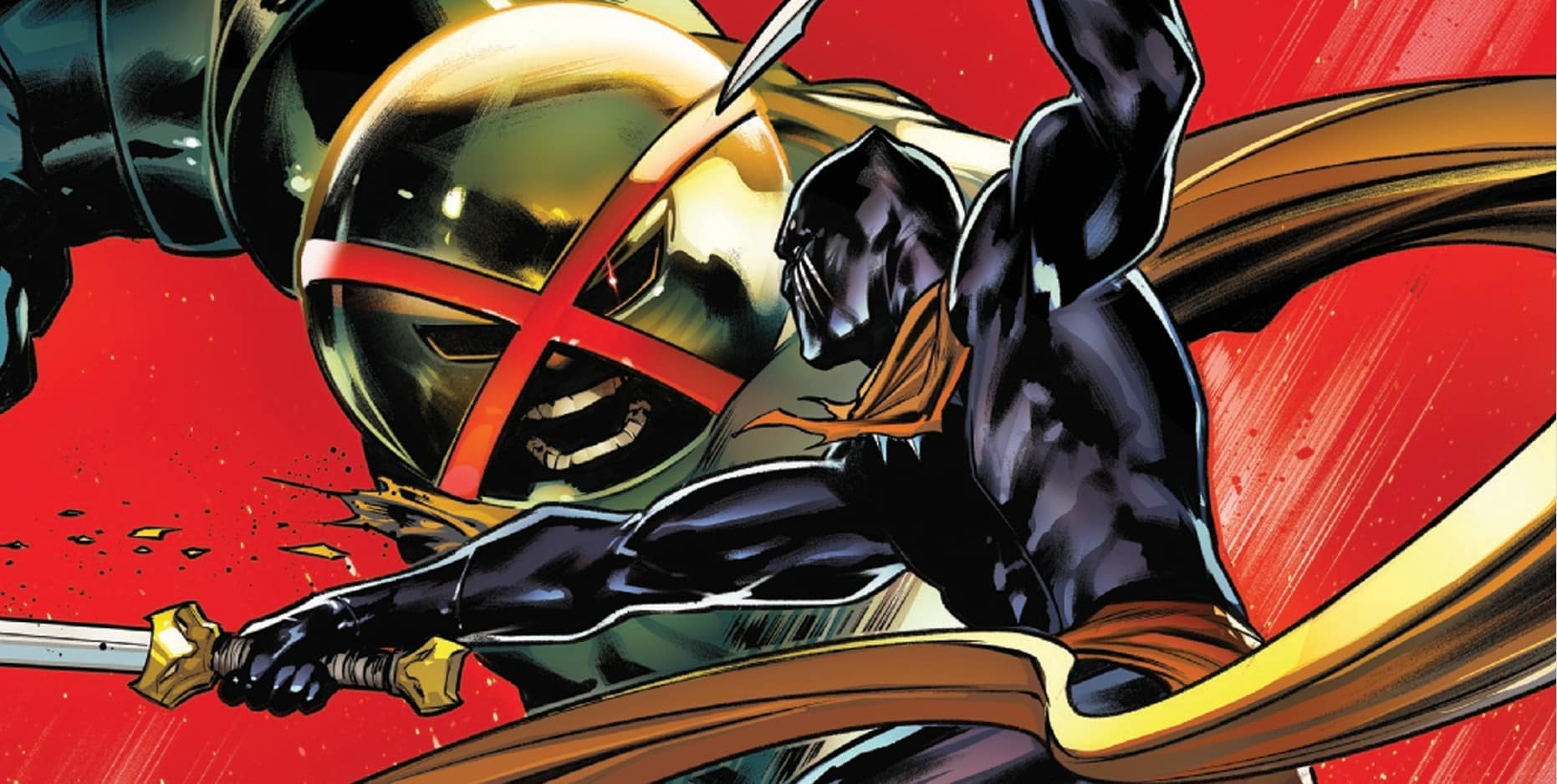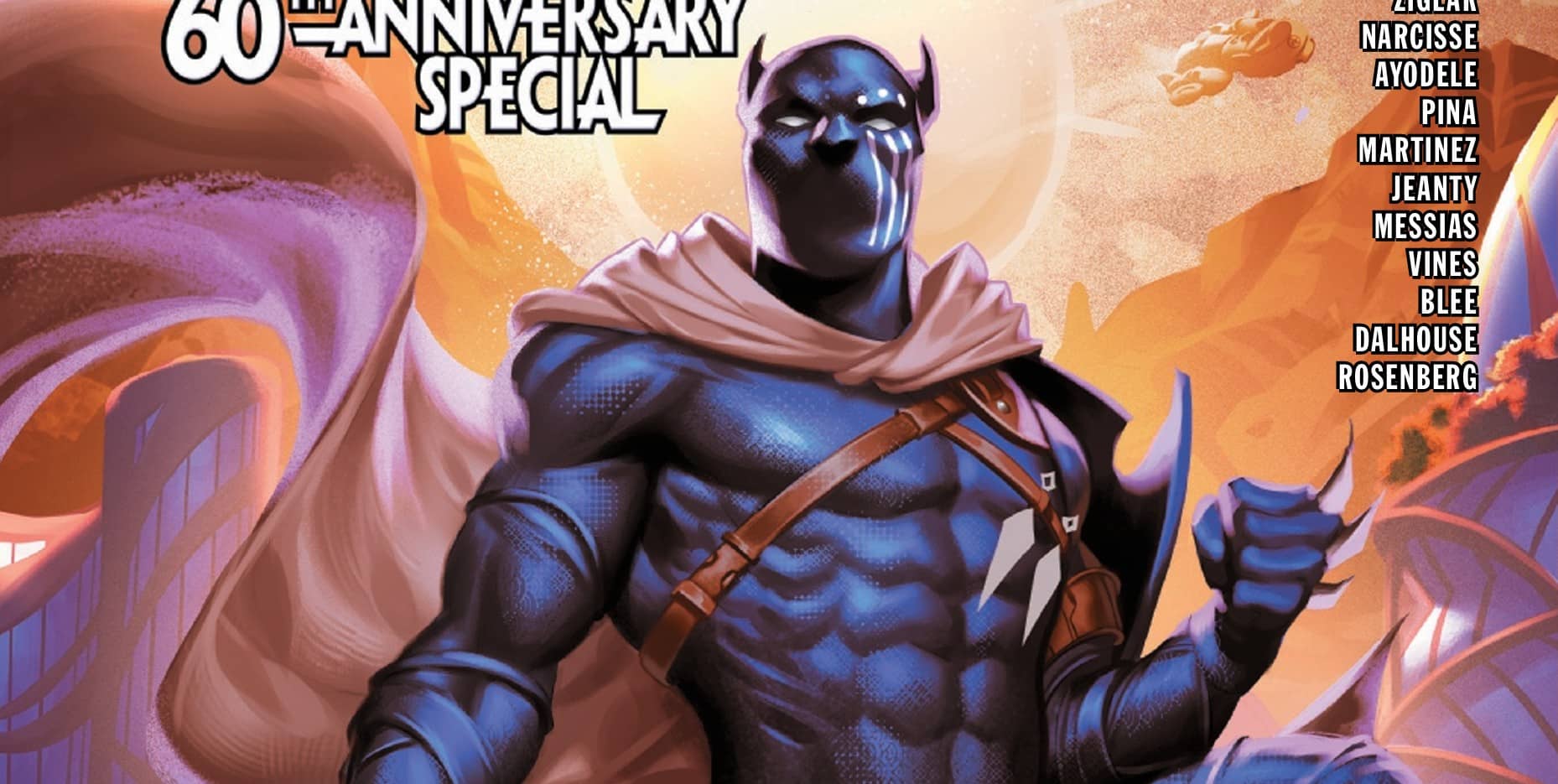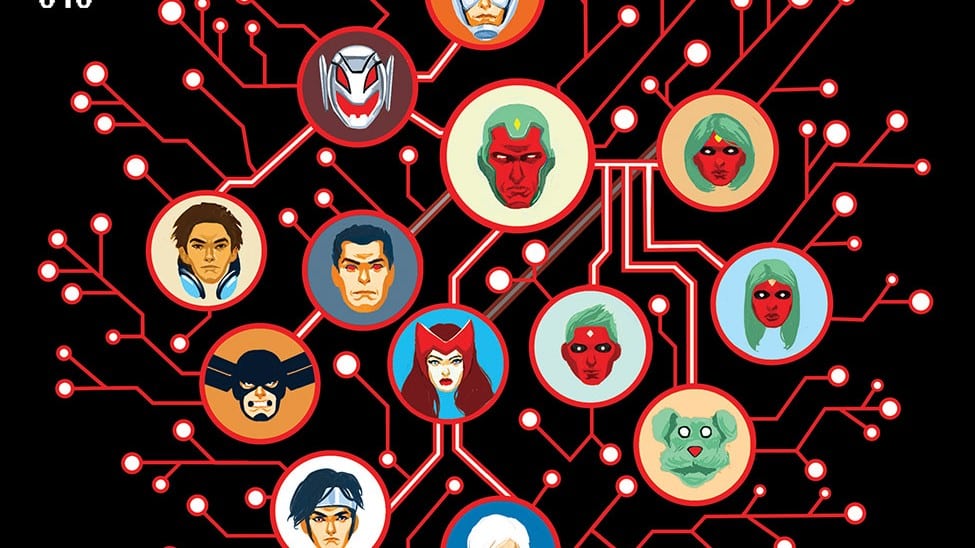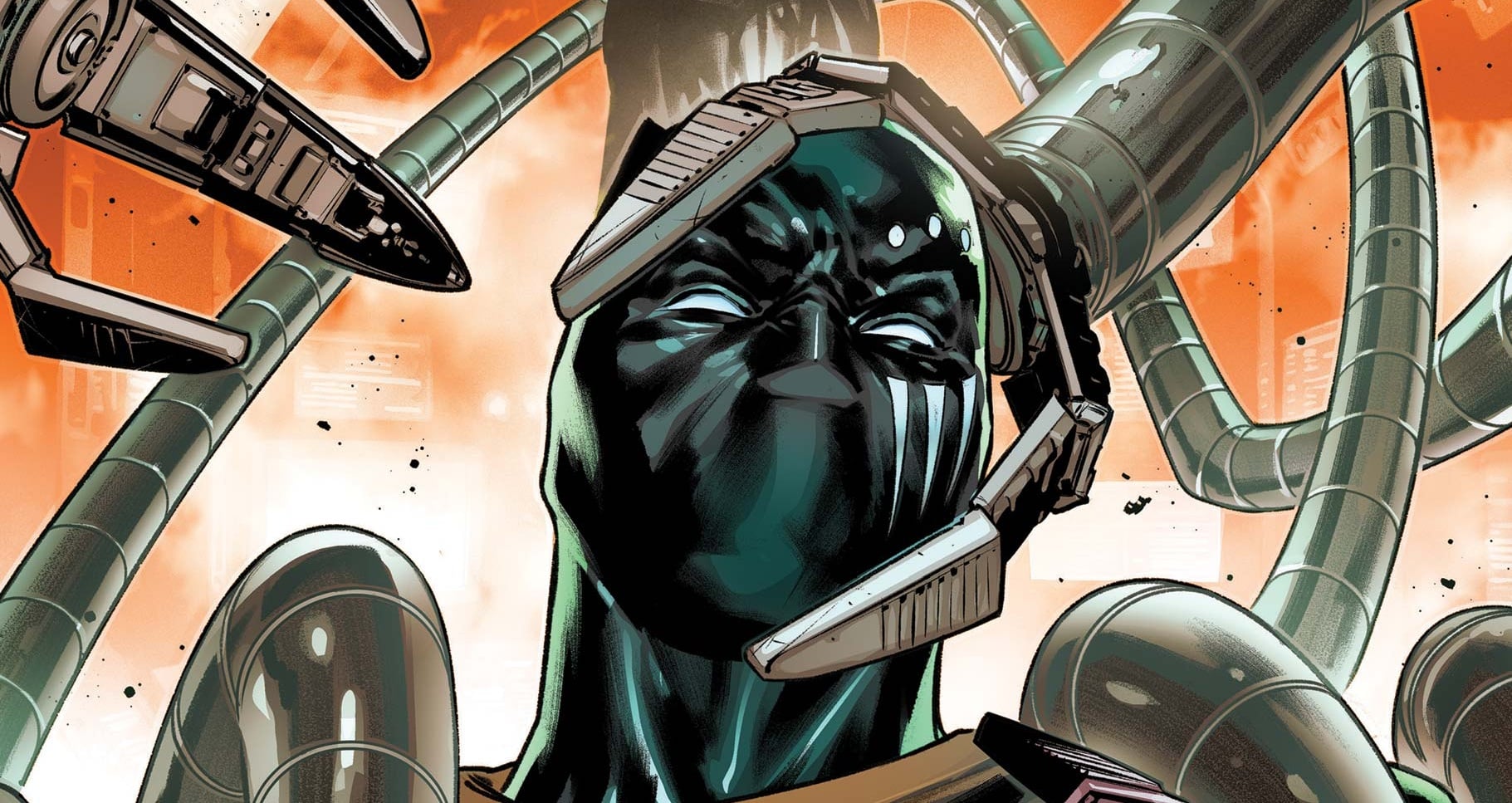The women in his life bail out T’Challa in Black Panther #6 written by John Ridley with art by Stefano Landini, colors by Matt Milla, and letters by Joe Sabino.
Black Women are the Foundation; Black Women are the Future.
At one point in the census track I grew up in, the average life expectancy was 55 years old.
And while that’s extended a bit since then – for reasons – it’s still galling to think that for many of my peers, our late twenties was our *literal* middle age.
So many things ail us; there are so many reasons why this was (is) the case. Reasons that you certainly didn’t pick up a comic review to read.
But there’s one constant, a constant I can speak to, a constant I’ve observed among friends and students and coworkers and, well, T’Challa.
That constant, that silent killer that keels us over in our prime…is pride.
Refusal to ask for help. To seek counsel, or a doctor, or to look and feel like we can’t handle it, whatever it is. So many things conspire to kill us, but it’s too often our own pride that does us in.
And when we die, or are dying; when we are suffering, and yelling internally for help but externally simply projecting frustration…who is there? Who understands this? Who, quite frankly, anticipates this?
Who bears this burden of our own bringing?
Black women. Always Black women, the Foundation and the Future of our being.
T’Challa is in over his head. The man who always has a plan is on the run, a convict in his own kingdom after his secret plan for Wakandan protection was brought to light. Rather than stand trial in a kangaroo court – a court almost certainly staffed by a traitor – he escaped his country, now hunted by the very paramilitary force once at his beck and call, the Hatut Zeraze.
And the plan to avoid capture, from this man known for always having a meticulous plan ready to go? This plan is essentially this: fight harder, don’t die.
It’s a simple plan, stark in how unsophisticated it is. On the one hand, it’s extremely unlike T’Challa, who’s preparedness (or plot armor) rivals that of a certain Gotham-based billionaire bat fanatic. On the other hand, this carnal back-against-the-wall action fits the moment and feels structured to yield a particular result: unilateral victory. In another work, a lesser work, this is where the man would find the strength to win, odds all against him.
Black Panther #6 is not a lesser work.
He trips. He falls. The gun is at his head. He calls for the Gods; he is saved by the Goddess.
He is saved by Storm.
She is still (understandably) salty about her former lover spying on her. She saves him only to (literally) strike him, out of anger and frustration and sadness and…love.
Love, you know, hurts.
Their conversation about all the pain they’ve caused each other is long overdue. And while the overtones feel like a breakup is inevitable (maybe you shouldn’t say your dead best friend is the *only* person you loved?), the only way for them to move forward has to be with forthrightness and honesty. This is good and necessary in a relationship; it’s mature and overdue in their recent comic appearances.
T’Challa is also saved by his sister, who put a tracking device in his food. Apparently, lack of trust runs in the family, which in this case, is a blessed thing.
Along with his fellow outlaw Omolola and the Dora Milaje (who lead Storm to T’Challa), a group of Black women saved the once and future king from himself.
Art imitates life, indeed.
And of the art: the colors in Black Panther #6 are muted, faces sometimes feel mangled and uneven. Lip sizes grow and shrink from one panel to the next. The action sequences are well paced, and illustration gives more than adequate feeling of movement.
It’s not bad, but it’s not great. I really want everything about this comic to be great.
Comics are great for many things; witnessing growth is not one of them. How many characters have evolved in a run, only to find themselves reset when a new writer (or new corporate owner) deems it necessary? How many times have characters started from zero, again and again, retarding any lessons learned?
My original critique of this comic still stands – T’Challa is not the man Coates left us. What I’ve come to appreciate is how this man, as he’s knocked around and humbled, might finally be learning the lessons of trust, humility, and community that his predecessor incarnation understood inherently.
Will he really learn? Will he finally grow?
We can only wait to see.
Noting Storm’s help, Hatut Zeraze Commander Akili (aka the person so obviously the traitor that it clearly can’t be him) seems to imply that war *with the mutants* may be at hand. The mutants have their hands full with Orchis and the Eternals; what’s one more intergalactically sourced threat?
The art for next month teases T’Challa at the center of this dynamic group of women who are hell bent on saving the king – and kingdom – from himself.
Maybe one day, we’ll get to a point where the man isn’t always centered; where the man can proactively ask for help instead of slinking behind secrets and subterfuge. Maybe one day men, Black men, even that kingly fictional Black man, and the very real (and slightly less kingly) Black man behind the words you’re reading, will learn to ask for help before we need it.
Maybe one day.
But not today.
Today, they (we) struggle and fight, and I will read, impressed and engaged, as our Foundation and the Future fight for our freedom.
A proud New Orleanian living in the District of Columbia, Jude Jones is a professional thinker, amateur photographer, burgeoning runner and lover of Black culture, love and life. Magneto and Cyclops (and Killmonger) were right. Learn more about Jude at SaintJudeJones.com.

